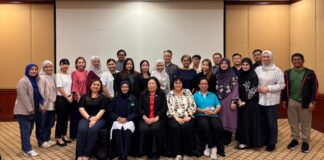By Datuk Ts Dr. Hj Ramli Amir, former President of the Chartered Institute of Logistics and Transport (CILT) Malaysia and Vice-President of CILT International for Southeast Asia
KOTA KINABALU: Episode 6: The Economics of Recovery — Beyond Ships, Building Capacity Sabah’s situation is bluntly clear: shipping is not the core problem—it’s the symptom of a much deeper imbalance.
For decades, national policy favoured shipowners while overlooking the producers who actually fill those ships. The result is an economy that exports raw materials, imports finished goods, and never achieves the scale needed for efficient transport.
Sabah cannot simply buy its way out with new ships or freight subsidies. Its recovery depends on creating industries, adding value, and producing consistent output that truly justifies modern logistics.
Breaking Free of the Volume Trap
Sabah’s trade is trapped in a low-volume, high-cost structure. To escape, it must create its own cargo through three key strategies:
Downstream Value Creation: Turn palm oil, timber, and minerals into refined, high-value exports such as biochemicals, engineered wood, and sustainable fuels.
Industrial Deepening: Build supply chains around companies like SK Nexilis and Kibing Group to attract more manufacturers and component assemblers.
Export Consistency: Maintain steady production cycles to ensure predictable container flows.
When Sabah produces at scale, shipping costs naturally decline—because in logistics, shipping follows production, not the other way around.
Episode 7: The DP World Model — Ports Before Ships
The 2024 partnership between Sabah Ports and DP World reshaped Sabah’s logistics strategy. With RM899.8 million in investment, Sapangar Bay Container Port is being expanded to handle 1.25 million TEUs by 2026—transforming it from a feeder port into a regional transshipment hub for the BIMP-EAGA subregion.
DP World brings global credibility, discipline, and connectivity to a system previously slowed by isolation. As more global vessels call directly at Sapangar Bay, Sabah can reduce its dependence on Port Klang and shorten transit times dramatically.
The principle is simple: ports must come before ships. Infrastructure and reliability attract liners—but only when strong trade volumes support them.
Episode 8: Rewriting the Competition Playbook
Malaysia’s Block Exemption Order (BEO) allows shipping alliances to share capacity through Vessel Sharing Agreements (VSAs). While this works well on West Malaysian routes, it disadvantages East Malaysia, where costs are higher and services less frequent.
As the BEO renewal approaches, Sabah should advocate for conditional exemptions that include:
Service Level Obligations to ensure minimum service frequency to East Malaysian ports.
Regional Impact Assessments to verify that alliances don’t sideline East Malaysian trade.
Transparent Rate Structures for public accountability.
This reform would make national policy fairer. Yet the deeper challenge remains—the Domestic Shipping Licence (DSL) that blocks foreign carriers from domestic routes.
Episode 9: The Exemption Challenge — Breaking Domestic Barriers
Even as Sabah’s industrialization gains pace, exporters remain trapped by policy bottlenecks. Domestic shipping lines, protected under the DSL regime, have exclusive rights over routes linking Sabah and Port Klang.
In theory, this protects national carriers. In practice, it restricts Sabah’s access to reliable, cost-efficient logistics. With limited volume, domestic operators struggle to compete—forcing exporters to absorb high freight rates or endure delayed shipments.
The problem now isn’t capacity—it’s licensing rigidity. Sabah’s manufacturers produce world-class goods but can’t move them efficiently.
The Case for Targeted Flexibility
To fix this, Sabah policymakers propose a time-bound DSL exemption. Select foreign carriers would temporarily be allowed to move Sabah-origin containers to major Malaysian ports, under strict oversight.
This isn’t a policy surrender—it’s an adaptive bridge, a temporary phase to grow volume until local competition becomes viable.
The approach includes:
Conditional Implementation: Only where domestic lines fail to meet reliability or frequency benchmarks.
Volume Thresholds: The exemption ends once throughput sustainably exceeds a set TEU level.
Joint Oversight: MyCC, MOT, and the Malaysia Shipowners Association ensure compliance.
Local Partnerships: Foreign carriers must work with Sabah-registered logistics firms to keep value local.
Sabah isn’t giving up control—it’s using smart openness to unlock capacity, drawing lessons from other emerging maritime economies where managed liberalization strengthened competitiveness without undermining sovereignty.
Episode 10: Navigating Controversy and Building Consensus
Critics argue that allowing foreign carriers threatens national control and local fleets. But this confuses protection with progress. Sabah’s current logistics setup protects inefficiency while punishing productivity. The goal is not deregulation—it’s strategic flexibility.
Under this limited exemption, domestic carriers get breathing room to scale alongside rising exports—not against them. As output stabilizes, routes can sustain multiple operators, and foreign exemptions can be phased out.
Refusing flexibility, however, risks investor confidence. Manufacturers won’t invest where shipping reliability is uncertain. The DSL exemption thus becomes a signal: Sabah won’t let bureaucracy limit its industrial future.
This reform transforms protectionism into partnership—replacing outdated privileges with measurable goals and practical timelines.
Episode 11: Integration Through BIMP-EAGA — Building Regional Scale
The DSL exemption will work best within the BIMP-EAGA framework, which links Brunei, Kalimantan, Sulawesi, Sarawak, Labuan, and Mindanao—an 80-million-person subregional market.
With shared customs standards, inland depots, and feeder networks, regional cargo can be consolidated through Sabah’s ports. The exemption won’t isolate Sabah; it will integrate it—allowing foreign carriers to bridge trade corridors while local operators prepare to take over as volume stabilizes.
Done right, this could evolve into a regional logistics partnership model, strengthening East ASEAN trade.
Episode 12: The Strategic Compass — Pragmatism Over Protection
Sabah’s maritime strategy for the future rests on one guiding truth:
Production leads shipping: policy must follow pragmatism.
A state-run shipping line would waste resources chasing cargo that doesn’t exist. A global operator at Sapangar Bay, paired with a flexible policy framework like the DSL exemption, does the opposite—it lets production take the lead while logistics adjust.
Four Pillars for the 2030s:
Industrial Deepening: Strengthen manufacturing clusters at KKIP, POIC, and Kimanis.
Maritime Integration: Connect Sabah’s ports with DP World’s global network.
Policy Realignment: Reform BEO and DSL structures to match production realities.
Regional Synergy: Use BIMP-EAGA for joint logistics and market expansion.
This shifts public spending from propping up inefficiency to funding innovation, skills, and export readiness. True competitiveness comes from productivity—not protectionism.
Epilogue: Redemption Through Reform
Sabah’s decades-long maritime struggle—from cabotage limits to the block exemption paradox—has never been about geography, but governance. For too long, Malaysia treated shipping as a privilege rather than an enabler.
That era is ending. The Domestic Shipping Licence exemption, designed as a temporary fix, represents a long-overdue policy maturity. It shows that openness, when managed wisely, strengthens sovereignty instead of threatening it.
As Sapangar Bay’s cranes lift containers of solar glass, copper foil, and biofuels, each shipment tells a larger story—a story of a state that refused isolation as destiny.
Sabah’s redemption won’t come from owning ships, but from owning its trade destiny. And if that destiny begins with a single, temporary exemption that breaks a decades-old bottleneck—then that’s how reform begins: quietly, pragmatically, and irreversibly.
Only by moving beyond the safe harbours of outdated protectionism can Sabah finally resolve its paradox—not as tragedy, but as triumph.


